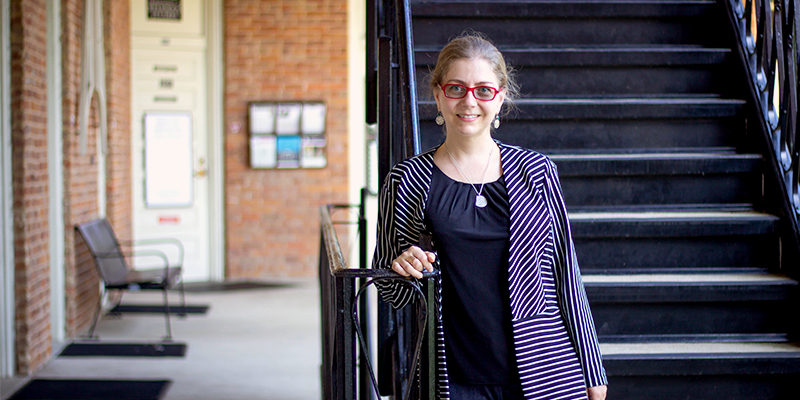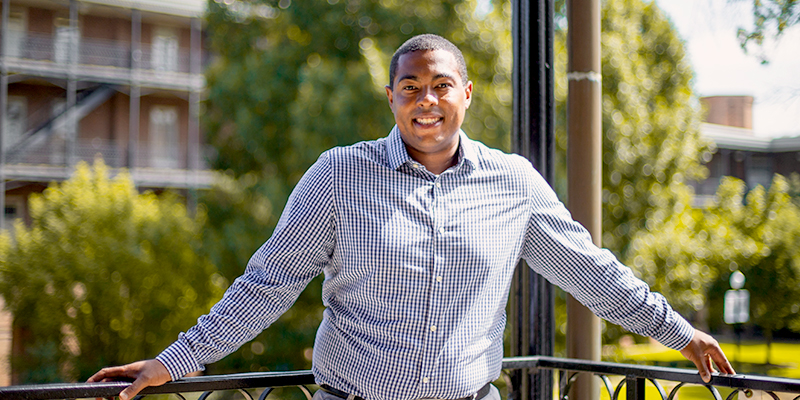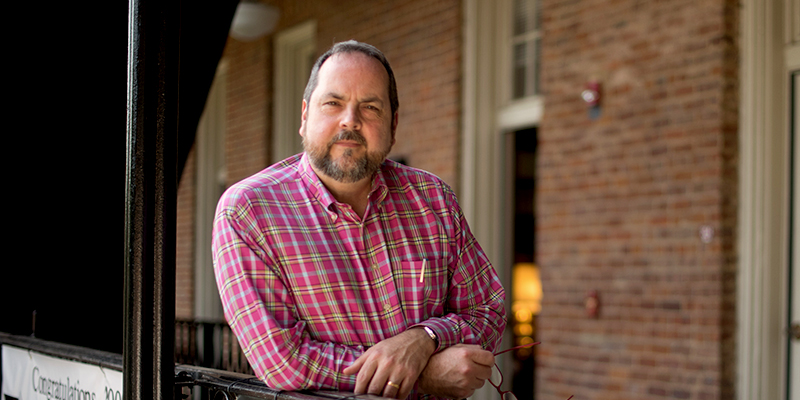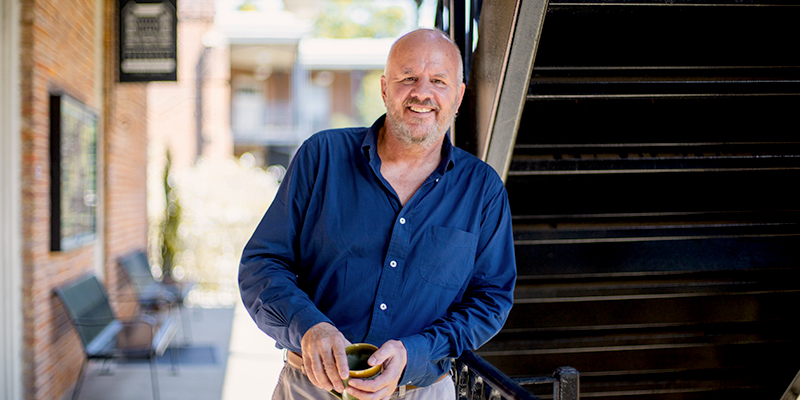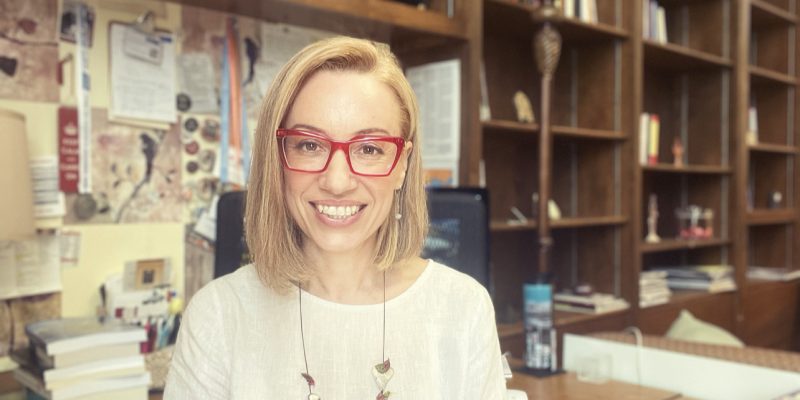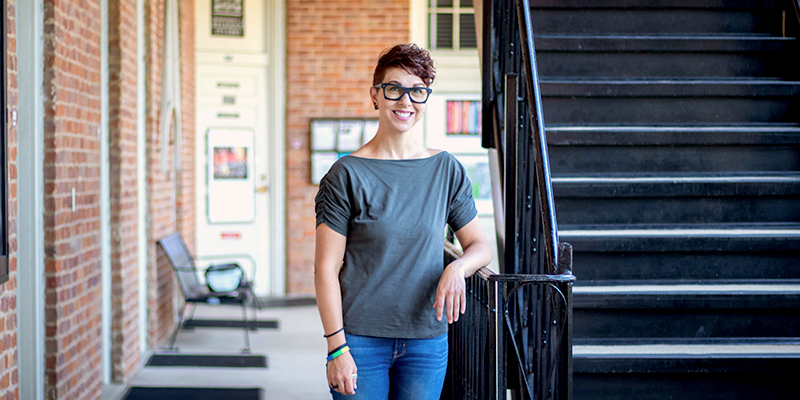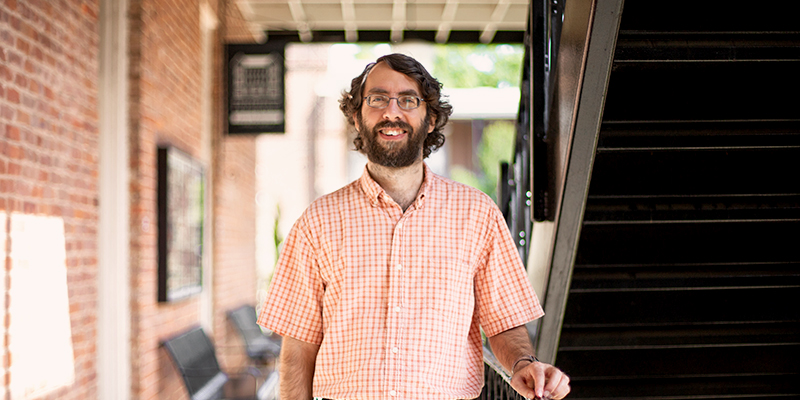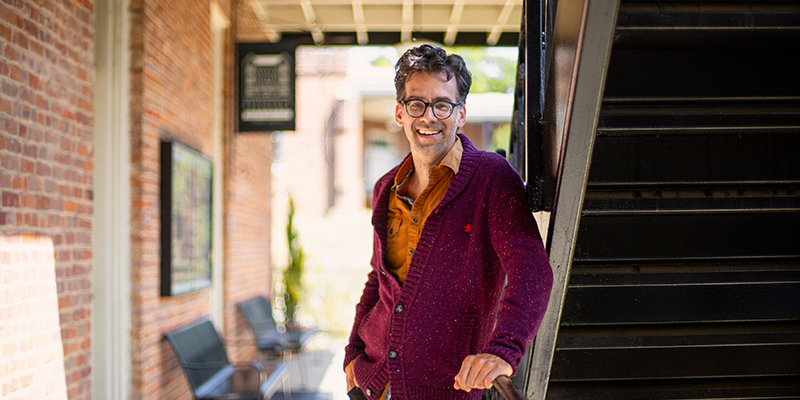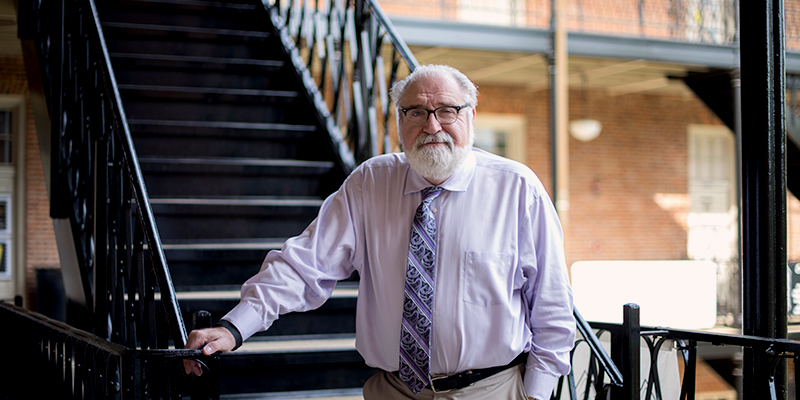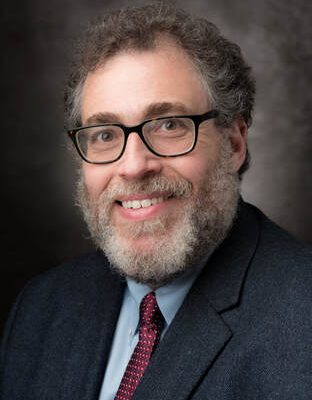
Daniel J. Levine
Associate Professor |Aaron Aronov Chair of Judaic Studies
- 311 ten Hoor Hall
- (205) 348-5271
- djlevine@ua.edu
- Curriculum Vitae
Office Hours
Wednesday, 10:30-12:00; Thursday, 3:30- 4:30; or by appointment
Website
Education
- AB, Near Eastern Languages and Civilizations, The University of Chicago, 1993
- MA, Security Studies, Tel Aviv University, 2002
- PhD, Political Science, the Johns Hopkins University, 2009
Research Areas
- International Relations/Global Politics
- The Israel-Palestine Conflict
- Critical Theory/German Idealism
- Political Theory, Political Theology, the 'Political Sublime'
- History & Memory
Bio
I am the Aaron Aronov Associate Professor in Judaic Studies, with joint appointments in the Departments of Political Science and Religious Studies. My primary research interests are in International Relations, international political theory, middle eastern politics, history and collective memory, and aesthetics.
I have two main research projects. The first uses Frankfurt School social theory and the history and philosophy of social science to interrogate the interactions between academic scholarship and public policy.
The second project explores Jewish/Zionist political and strategic thought in the decade between the Palestinian Revolt of 1936-39 and the founding of the State of Israel. My aim here here is to better understand fear: both the direct experience of it, and its ‘afterlife’ in a variety of political identities, institutions, and practices.
Selected Publications
-
“Constructing Incommensurables: Hebrew’s Machiavellian Moment.” In International/ Interlingual, eds. Mauro Caraccioli and Einar Wigen (University of Michigan), forthcoming
-
“Critical Theory.” Elgar Encyclopedia of International Relations, eds. Beate Jahn and Sebastian Schindler (Edward Elgar), forthcoming
-
“A River of Time: Jewish Memory Practices in Rural Alabama” Tributaries 17 (2023), 54-67.
-
“In the Shadow of No Future” Association for Jewish Studies Review (Fall, 2022), 22-23 https://www.associationforjewishstudies.org/pedagogy-in-the-shadow-of-no-future
-
“‘He Knew of a Surety’: Realism, Zionist National-Security Discourse, and the Absent Sublime” Global Studies Quarterly 2:3 (August, 2022), 1-13, https://doi.org/10.1093/isagsq/ksac037
-
Forum on Brent Steele’s Restraint in International Politics. H-Diplo/ISSF Roundtable 13-12 (August, 2022), https://issforum.org/ISSF/PDF/ISSF-Roundtable-13-12.pdf
-
“After Tragedy: Melodrama and the Rhetoric of Political Realism” Journal of International Political Theory 15:3 (2019), 316–331
-
“After First Principles: The Sociological Turn in International Relations as Disciplinary Crisis” The Sage Handbook of the History, Philosophy, and Sociology of International Relations (Sage, 2018), eds. Andreas Gofas, Inanna Hamati-Ataya, and Nicholas Onuf, 296-310; with Alexander Barder
-
“Threat Inflation as Political Melodrama: ISIS and the Politics of Late Modern Fear” Critical Studies in Security 6:1 (2018), 136-54; reprinted in Daniel Bertrand Monk (ed.): Who’s Afraid of ISIS: Toward a Doxology of War (Routledge, 2018)
-
“Why Does Pluralism Matter when we Study Politics? A View from Contemporary International Relations,” Perspectives on Politics 16:1 (2018), 92-109; with David M. McCourt
-
“Defending ‘Planet Politics’: A Reply to our Critics” Millennium 46:2 (2018), 209-19; with Anthony Burke, Stefanie Fishel, Audra Mitchell, and Simon Dalby
-
“‘These Days of Shoah’: History, Habitus, and Realpolitik in Jewish Palestine, 1942-43” Political Power and Social Theory 32 (2017), 99-125
-
“Recasting Worldliness in International Theory: Vocation, Non-Identity, Finitude” International Studies Review 19:4 (2017), 714-17
-
“Planet Politics: A Manifesto from the End of IR” Millennium, 44:3 (June, 2016), 499-523; with Anthony Burke, Stefanie Fishel, Audra Mitchell, and Simon Dalby
- Co-winner of the Yale H. Ferguson Award, International Studies Association-Northeast Region (November 2013) and winner of the Sussex International Theory Prize, Center for Advanced International Theory at the University of Sussex (June 2013); for Recovering International Relations (Oxford, 2012).
